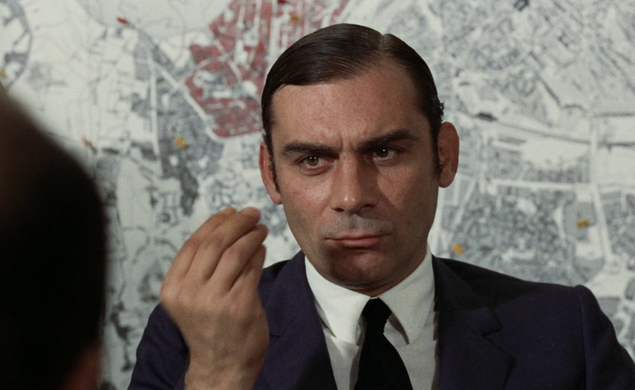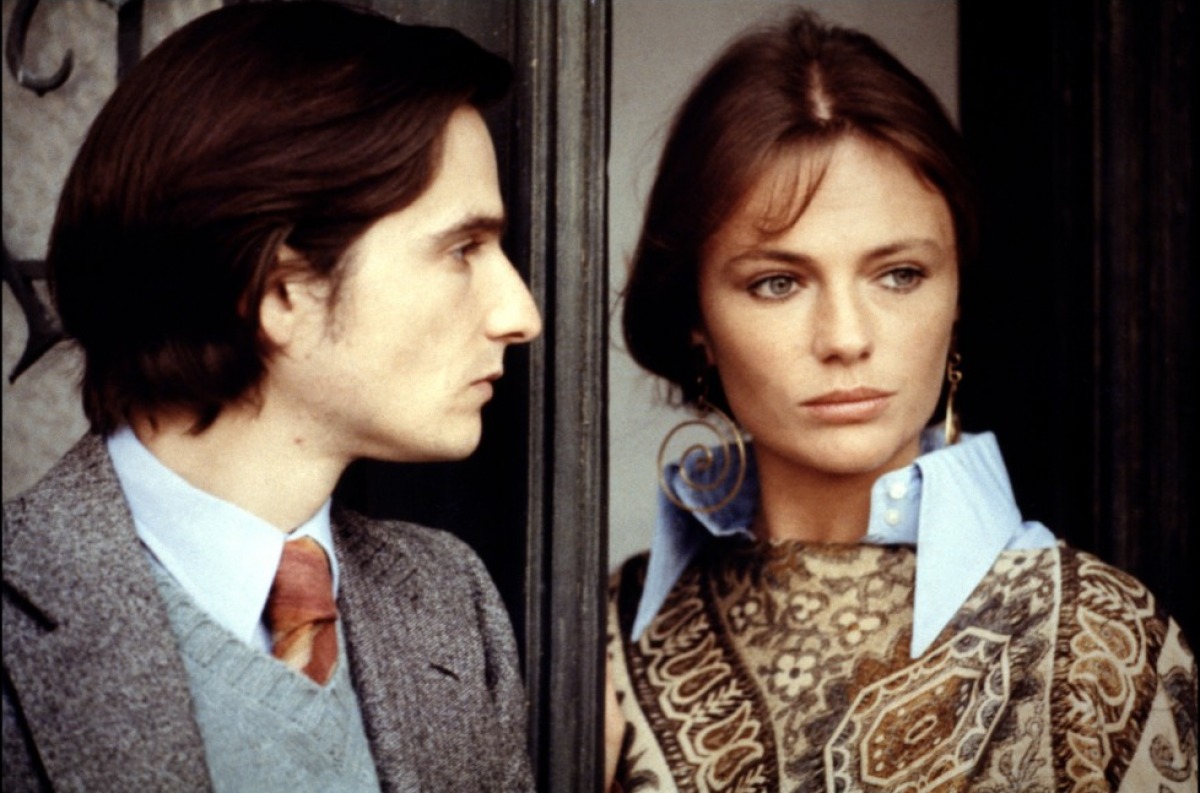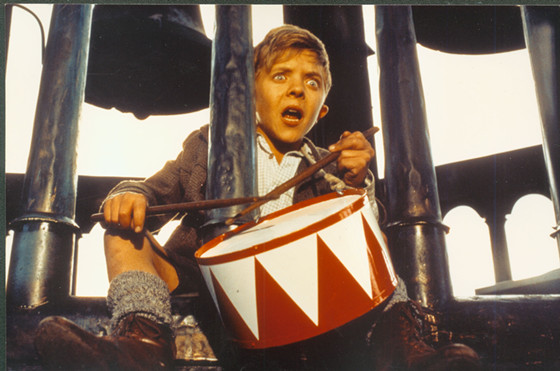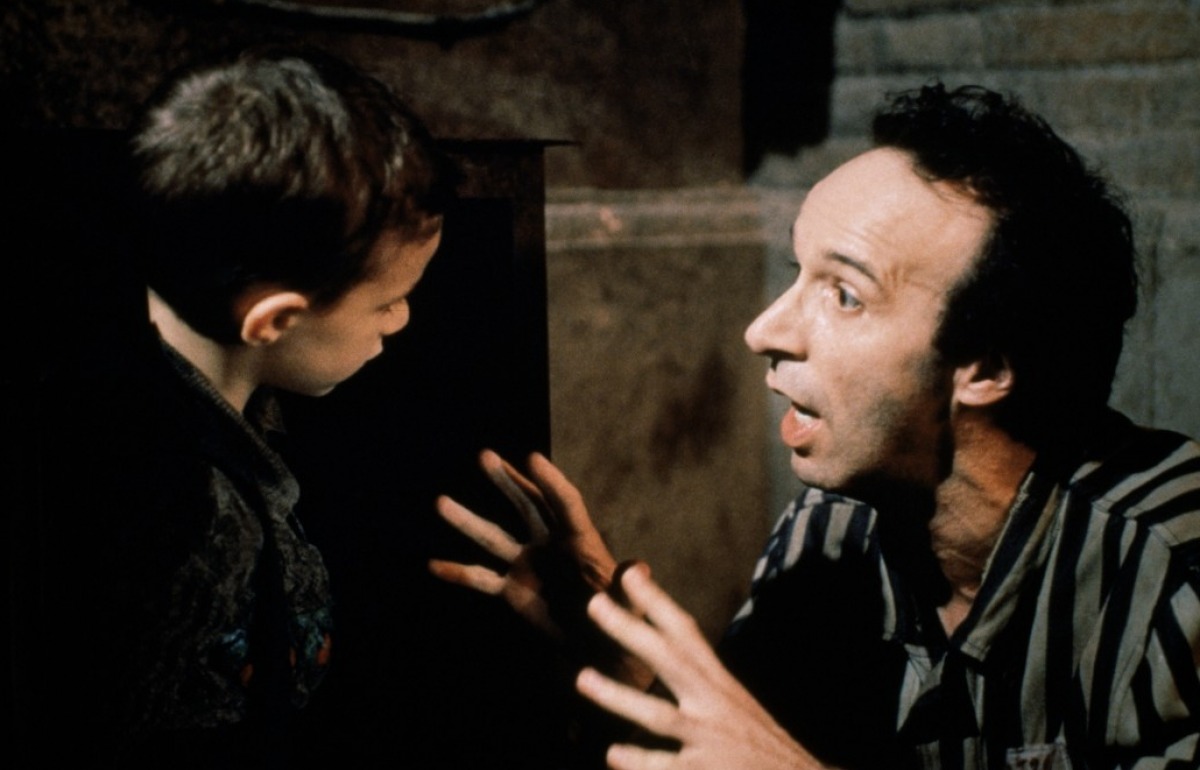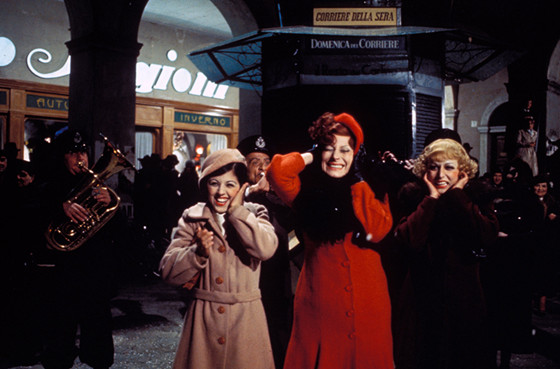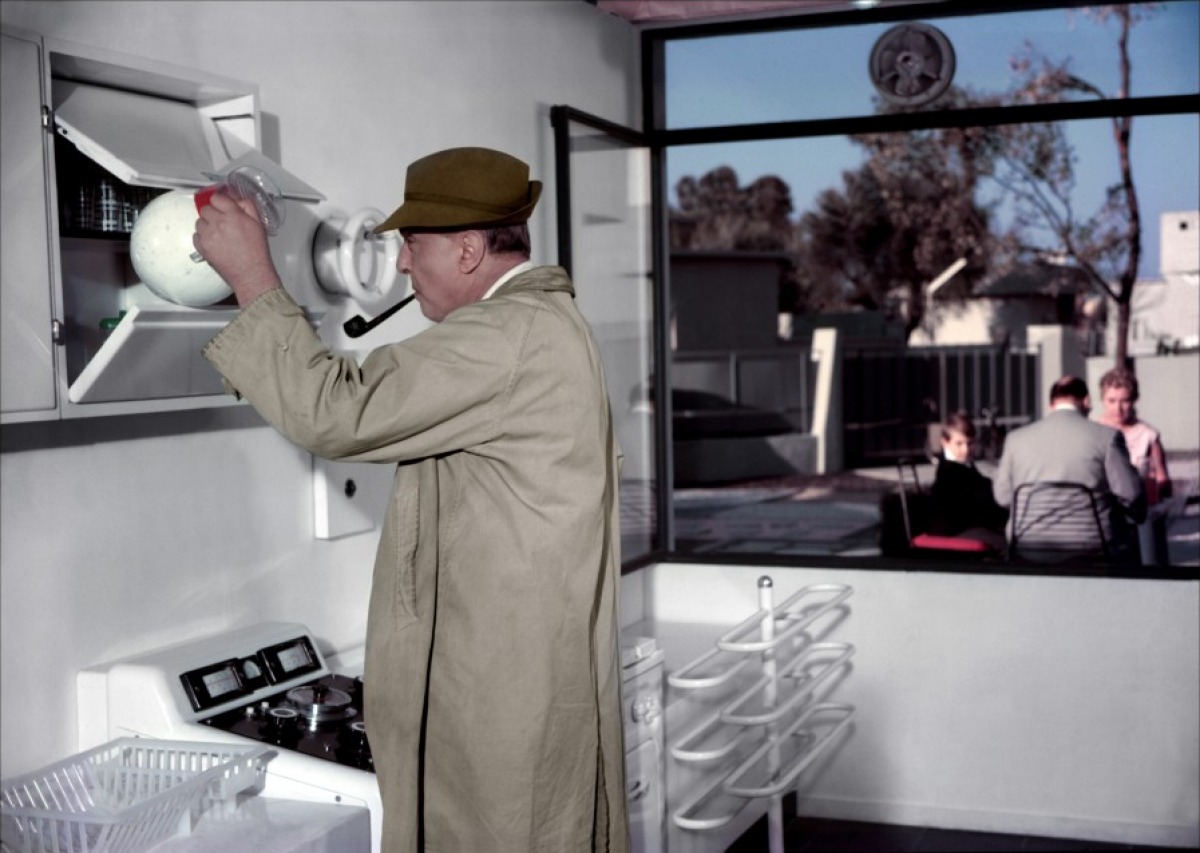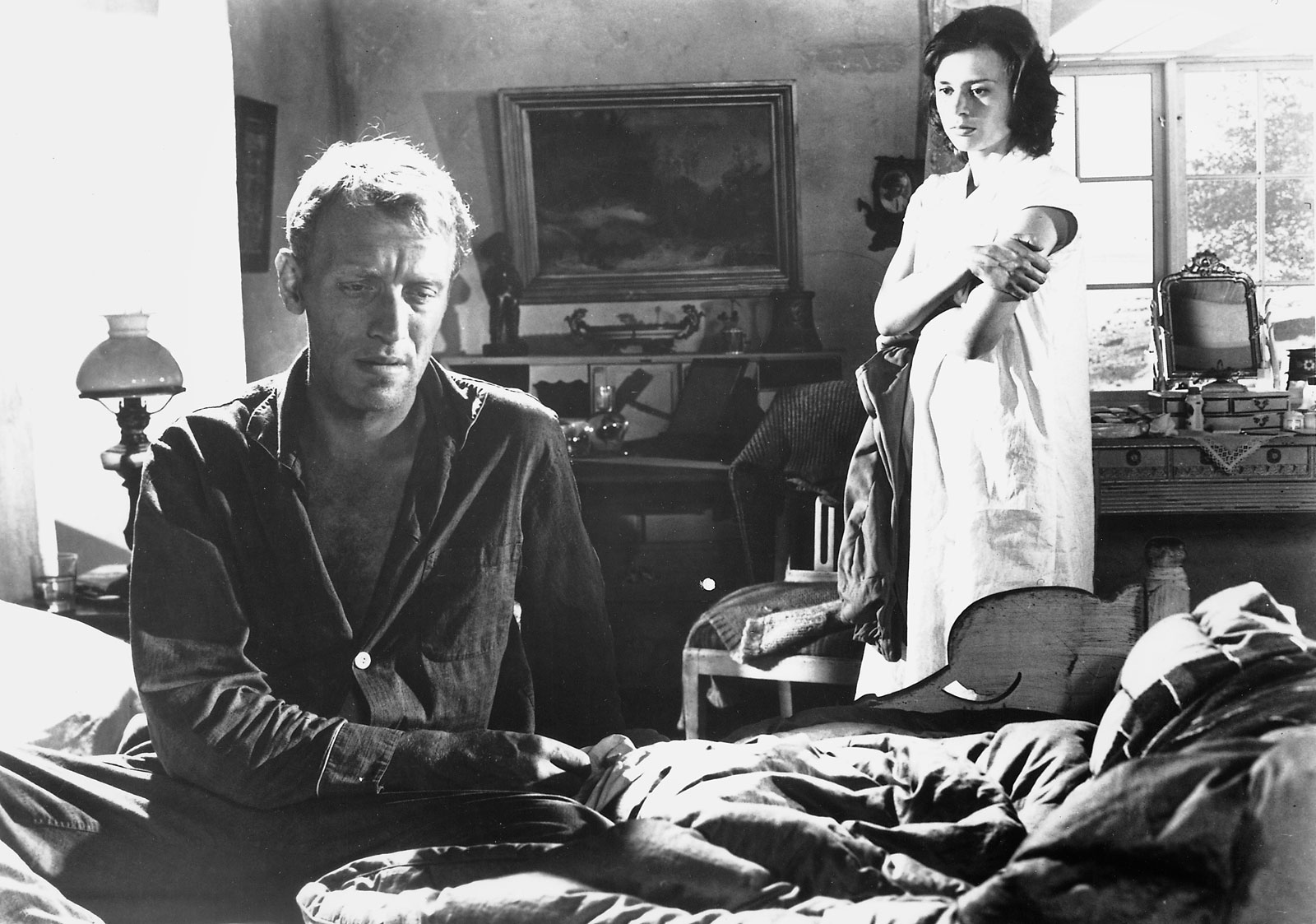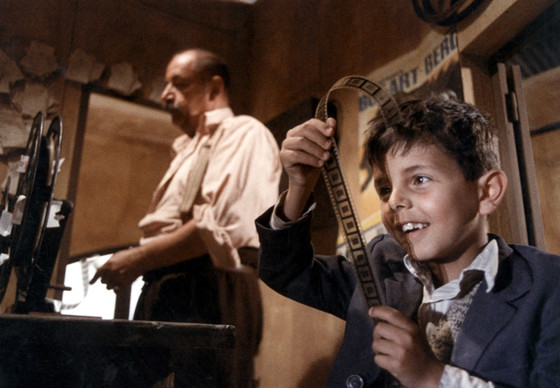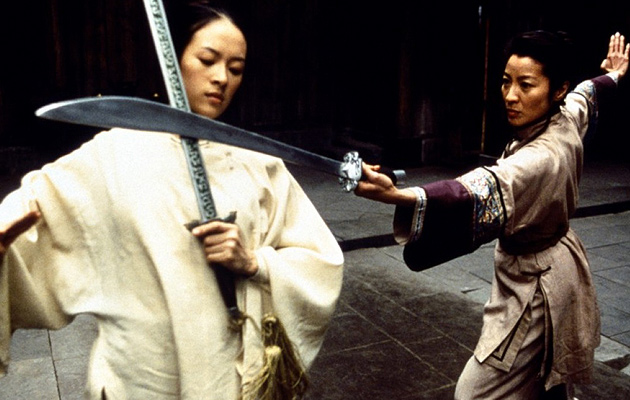17. Indagine su un cittadino al di sopra di ogni sospetto (Dir. Elio Petri, 1970)
A police inspector (Gian Maria Volonté) murders his mistress and waits to see how long it will take for his subordinates to catch him. Petri’s inventive story and direction highlight this dark satire, which examines power and corruption with such cadence and dark humor. The film would be considered one of Petri’s masterpieces, as well as one of Volonté’s best roles.
16. La nuit américaine (Dir. François Truffaut, 1973)
Truffaut built his career as a shrine of his love of cinema, and La nuit américaine (Day for Night) showcased his cinematic obsessions by allowing viewers to take a peak behind the curtain. Day for Night follows a director (François Truffaut) as he tries to wrangle a hectic production – involving adulterous actors, personal tragedies, botched shots, and a host of other chaotic moments. Through it all, Truffaut’s humor and humanity shine through as the crew trudges through the personal failures in order to get their final shot. The film was nominated in other categories outside of Foreign Language Feature, including a nomination for Truffaut for Best Director.
15. Die blechtrommel (Dir. Volker Schlöndorff, 1979)
An ambitious adaptation of Günter Grass’ novel of the same name, Die blechtrommel (The Tin Drum) follows Oskar (David Bennent), a small child who – upon seeing the corruption of his own parents – cripples himself in order to stay a child forever. Through this perspective, Schlöndorff examines the rise of the Nazi regime, the death of Jews, the corruption of power, the violence of war, and postwar anxieties. It was a masterful achievement both in its narrative framework and its execution, juxtaposing “childhood innocence” against adult corruption.
14. La vita è bella (Dir. Roberto Benigni, 1997)
A surprise international success, La vita è bella (Life is Beautiful) tells the tragic tale of a father (Roberto Benigni) who tries to distract his child (Giorgio Cantarini) from the horrors of a concentration camp. The dramatic and comedic elements of the film combine to tell a bittersweet tale of the extents to which a parent will go in order to protect his/her child.
Some critics decried the film for adding comedy to the Holocaust, but I would argue that the film doesn’t trivialize the events. The tragedies are there, but Benigni (both as a director and an actor) tries to show that happiness and beauty can exist even amongst the dreck and the depravity. The film not only won for Best Foreign Language Film, but it also received Oscars for Best Actor and Best Original Dramatic Score.
13. Amarcord (Dir. Federico Fellini, 1973)
As Fellini fell into his twilight years, he created one of his last masterpieces, the slice of life Amarcord. The film borrowed many elements from Fellini’s own childhood, examining his coming of age through a rising regime, war-related anxieties, psychosexual neuroses, and the general comportment of a small village. It was one of the last great films from an Italian maestro.
12. Mon oncle (Dir. Jacques Tati, 1958)
With body language, sight gags, and barely audible dialogue, Tati constructed films that brilliantly employed his talents both as a director, an actor, and a comedian. Mon oncle was one of his biggest successes, and though it may not be his crowning masterpiece, it is still a wonderful film that manages to investigate consumer culture and architecture in an increasingly modernized world.
11. Såsom I en spegel (Dir. Ingmar Bergman, 1961)
Bergman created a stamp for himself by creating complex psychological melodramas that investigated the disintegration of a person’s identity and psyche. In Såsom I en spegel (Through a Glass Darkly), Bergman turned his lens toward Karin (Harriet Andersson), a young woman who slowly unravels while on vacation with her husband, father, and brother. It is a tense portrait of psychosis and existentialism, aided in large part by Andersson’s harrowing performance and Bergman’s flawless direction. The film began Bergman’s infamous “Faith” trilogy, which would follow with Winter Light and end with the masterful The Silence.
10. Nuovo Cinema Paradiso (Dir. Giuseppe Tonatore, 1988)
The tale of Salvatore’s (Salvatore Cascio as a child, Marco Leonardi as an adolescent, and Jacques Perrin as an adult) journey from an avid filmgoer to a world-renowned director is told through Tonatore’s whimsical storytelling. Its images and story are as timeless as the central theater house from which the film derives its name. Nuovo Cinema Paradiso is not only an exploration of one man’s cinematic obsessions, but it is an exploration of our own love of cinema.
9. Crouching Tiger, Hidden Dragon (Dir. Ang Lee, 2000)
There are very few contemporary foreign films that manage to infiltrate mainstream American culture, but Crouching Tiger, Hidden Dragon did exactly that. With its gorgeous cinematography and brilliant visual effects, this wuxia film managed to turn martial arts into a critical cultural moment. The film was not only a critical and commercial success, but it also became a pop culture staple and gave Lee a (both creatively and commercially) lucrative career.
